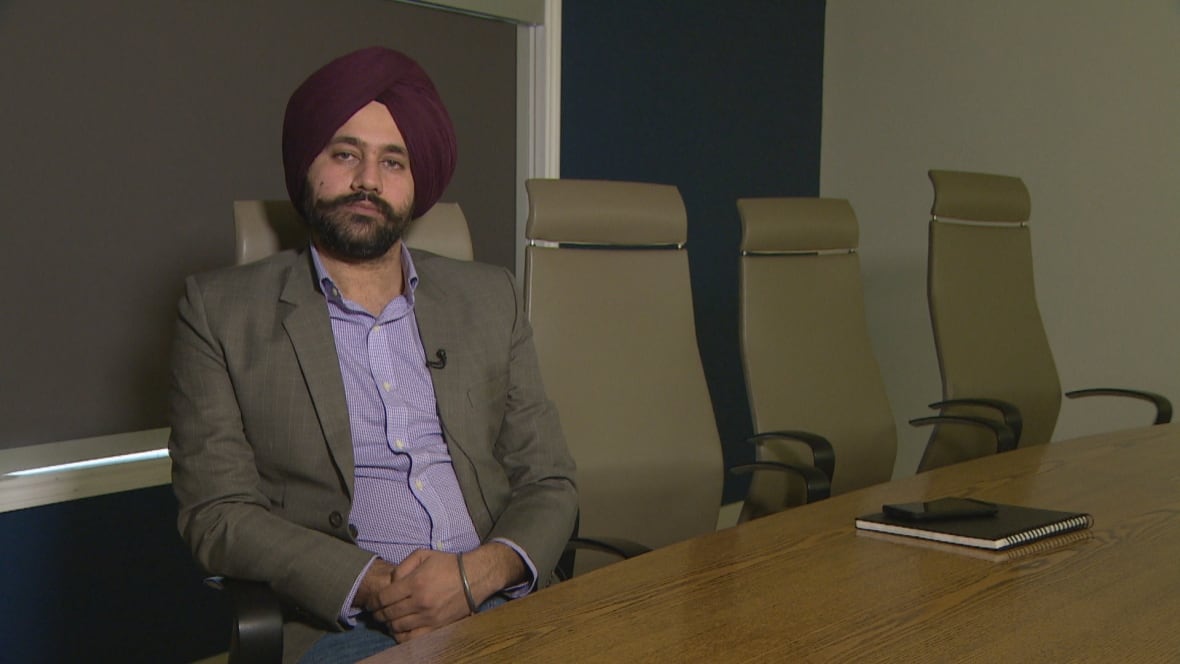As international students fighting removal from Canada over fake admission letters made headlines, Edmonton entrepreneur Kemi Bolatito-Bello saw an opportunity to help.
With several businesses already under her belt, Bolatito-Bello pivoted to an entirely new industry in 2020.
She earned a diploma in immigration law and a licence as an immigration consultant, then developed a new company through the Alberta Catalyzer, which provides coaching and other resources for tech entrepreneurs.
Last year Bolatito-Bello launched Scooly — an AI-powered platform that connects international students and immigrants to vetted immigration experts and schools around the world.
“Scooly was founded to solve immigration fraud for international students and immigrants,” Bolatito-Bello said in a recent interview.
“We saw students being asked to leave Canada because of fake admission offers and asked what can we do? How can we use technology to fight the crime going on in that space?”
While Bolatito-Bello was applying her entrepreneurial prowess to the issue, Ottawa was also taking steps to ramp up oversight, rules and investigations.
And according to a new survey commissioned by CBC News, there is a strong appetite for more regulation among the people who have lived it first-hand.
Eight in 10 newcomers reported having an overall positive experience with the immigration process. Almost half said they had used the services of an immigration consultant or lawyer to navigate the immigration system.
But nine-in-ten respondents still agreed that Canada should better regulate immigration lawyers and consultants to ensure they give newcomers the right advice and don’t take advantage of them.
The survey, conducted by market research firm Pollara in November, asked 1,507 people who arrived in Canada in the past 10 years about their immigration experiences and found that 33 per cent used consultants, while 16 per cent used lawyers. A national survey of that size would normally have a margin of error of +/- 2.5 per cent.

The push for more protection isn’t surprising to Manraj Sidhu, an Edmonton lawyer who often represents people who have fallen victim to immigration fraud at the hands of consultants or employers.
Sidhu said Alberta needs to be more selective about which colleges are authorized to accept international students.
But ultimately, he said, foreign students and workers need better protections so they have the agency to speak out when they become victims of fraud.
As it stands now, the law considers victims equally complicit in the crime, Sidhu said.
The problem is that people who are being defrauded “are not at liberty to do anything,” he said.
“We need to understand the people who have been taken advantage of are not in a position to negotiate with the actors of the fraud.”
Regulatory changes
In an email to CBC News, Immigration, Refugees and Citizenship Canada said it has taken steps in the past five years to fight fraud in the immigration system.
In 2019, the federal government committed $51.9 million over five years to increase outreach and investigations by IRCC and fraud detection and criminal enforcement by the Canadian Border Services Agency.
Applicants can check if their consultant is authorized through the College of Immigration and Citizenship Consultants, a regulatory body created in 2021. Lawyers must be members of a law society. If not, applications can be rejected.
In December 2024, IRCC published draft regulations for the college aimed at ensuring immigration consultants comply with standards of conduct and competence while newcomers “have access to quality immigration and citizenship advice and representation,” which includes a compensation fund.
The draft regulations are available for review and comment until Feb 4.
“Prorogation does not impact the consultation or drafting processes for these regulations,” said Nancy Caron, a spokesperson with Immigration, Refugees and Citizenship Canada. “These regulations are anticipated to come into force in 2025.”
In March 2024, the Alberta government expanded anti-fraud measures through the Alberta Advantage Immigration Program “to better protect applicants,” Neil Singh, press secretary to Immigration and Multiculturalism Minister Muhammad Yaseen, wrote in an email to CBC News.
Eligibility requirements for employers who want to hire foreign workers now includes continuously operating for a minimum of two years with a place of business in Alberta where employees can report to work. The number of employee nominations has also been capped for smaller businesses.
“Alberta government’s Employment Standards and Temporary Foreign Worker Advisory Office are there to help workers understand their rights and get help when facing unfair, unsafe or unhealthy working conditions,” Singh said.
A spokesperson for Alberta Advanced Education outlined multiple requirements for the province’s 122 designated learning institutions aimed at protecting international students.
All authorized institutions operating for three years or less are subject to annual compliance reviews for three consecutive years.
Institutions must have clear policies that are publicly available. They must be transparent about tuition collection and refunds, and must also provide academic counselling and mental health supports.
Advanced Education is currently reviewing those requirements, largely in response to recent changes at the federal level to cut back on international student permits and crack down on fraud.
Last year, Saskatchewan introduced its own legislation to combat immigration fraud and protect foreign workers. Ontario is expected to follow suit soon.
But Siddhu said legislative rules already exist at the federal level.
“So rather than bringing in more laws, we need to change the procedure on how victims interact with the justice system,” he said.
#Edmonton #entrepreneur #joins #effort #ramp #antifraud #protections #immigrants












Leave a Reply